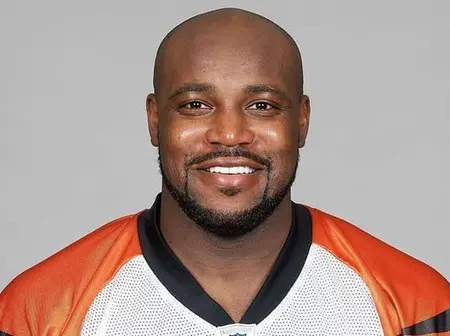September 24, 2025. The sports world is mourning the loss of former Cincinnati Bengals running back and Auburn University star Rudi Johnson, who tragically died by suicide early Tuesday morning. He was 45.
According to TMZ, Johnson had been battling severe mental health challenges. He was reportedly grappling with the possible long-term effects of Chronic Traumatic Encephalopathy (CTE)—a degenerative brain disease linked to repeated head trauma. This condition is common among professional football players. His death represents a true mental illness tragedy.
Authorities confirmed that Miami-Dade Fire Rescue responded to an emergency call in Sunny Isles Beach, Florida, at approximately 11:13 p.m. ET on Monday. Johnson was transported as an “adult trauma alert patient.” Despite emergency efforts, he succumbed to his injuries shortly after midnight.
Though the official cause of death has not been publicly released, sources close to the situation have confirmed that Johnson took his own life. This adds former football stars to another mental illness tragedy list.
Born Burudi Ali Johnson in 1979, Rudi Johnson rose to national prominence as a standout running back at Auburn University. His physical, downhill running style earned him accolades and admiration. He was drafted by the Cincinnati Bengals in 2001. He quickly became a cornerstone of their offense.
During his seven seasons with the Bengals, Johnson rushed for over 5,700 yards and scored 49 touchdowns. He earned a Pro Bowl selection in 2004. He was known not only for his powerful play but also for his humble demeanor and leadership in the locker room.
“Rudi was a fine person and an excellent running back for us,” said Bengals president Mike Brown in a statement. “He was dependable and productive as a player. He was very popular among his teammates. Everyone liked him and saw him as a dear friend. We are deeply saddened by his passing,” which many in the sports world view as a mental illness tragedy involving a former player.
Johnson’s death has once again reignited conversations around the NFL and the mental health crisis facing former players. This is particularly regarding CTE. The disease, which can only be diagnosed posthumously, has been found in hundreds of former players. It is associated with memory loss, depression, aggression, and suicidal behavior.
Though Johnson was never officially diagnosed, those close to him say he struggled in recent years with mood swings, isolation, and cognitive difficulties—symptoms commonly associated with the condition.
“Rudi was battling demons we couldn’t see,” said a former teammate who asked not to be named. “He was a warrior on the field, but off the field, he was fighting a different kind of battle, which unfortunately became a mental illness tragedy for this former player.”
Johnson’s passing is a heartbreaking reminder of the mental health struggles that often go unseen in the lives of athletes. As the league continues to address player safety and long-term health, advocates are calling for expanded mental health resources, early intervention, and ongoing support for retired players. This is crucial to prevent further mental illness tragedies.
For fans, friends, and former teammates, Johnson will be remembered not just for his contributions on the gridiron, but for the warmth and spirit he brought into every room he entered. His death is another mental illness tragedy. This event has shaken the sports world.
He is survived by his family, including his children, who ask for privacy during this incredibly difficult time.

Leave a Reply